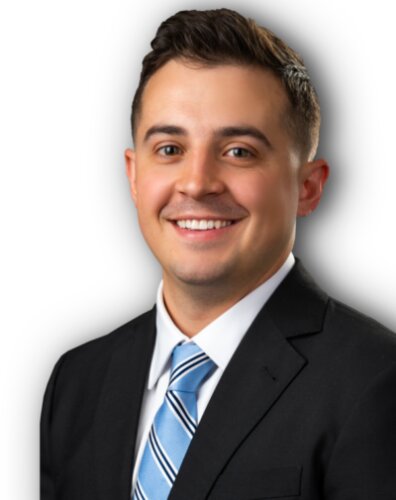Best Drugs & Medical Devices Lawyers in Boston
Share your needs with us, get contacted by law firms.
Free. Takes 2 min.
List of the best lawyers in Boston, United States
About Drugs & Medical Devices Law in Boston, United States:
Drugs & Medical Devices law in Boston, United States governs the regulations, licensing, and liability issues related to pharmaceuticals and medical devices. This area of law is crucial in ensuring the safety and effectiveness of drugs and medical devices used by the public.
Why You May Need a Lawyer:
There are several situations where you may need a lawyer specializing in Drugs & Medical Devices law. Some common reasons include filing a lawsuit for injuries caused by a defective drug or medical device, seeking compensation for medical expenses, or navigating regulatory issues related to the approval and marketing of drugs and medical devices.
Local Laws Overview:
In Boston, United States, Drugs & Medical Devices law is governed by federal regulations as well as state-specific laws. These laws cover topics such as product liability, FDA regulations, advertising and promotion, and patient rights. It is important to consult with a lawyer who is well-versed in these laws to ensure compliance and protect your rights.
Frequently Asked Questions:
1. What is the process for filing a lawsuit for injuries caused by a defective drug or medical device?
The process for filing a lawsuit for injuries caused by a defective drug or medical device typically involves gathering evidence, filing a complaint, and pursuing compensation through litigation or settlement negotiations.
2. How can I determine if a drug or medical device is safe and effective?
Drugs and medical devices are regulated by the FDA, which conducts thorough evaluations to ensure their safety and effectiveness before they can be marketed to the public. It is important to research and consult with healthcare professionals before using any drug or medical device.
3. What are the legal requirements for advertising and promoting drugs and medical devices?
Advertising and promoting drugs and medical devices are subject to strict regulations to ensure accuracy and prevent misleading claims. It is important to comply with FDA guidelines and seek legal advice to avoid potential violations.
4. Can I seek compensation for medical expenses incurred due to a defective drug or medical device?
If you have suffered injuries or medical expenses due to a defective drug or medical device, you may be able to seek compensation through a lawsuit against the manufacturer or other liable parties. Consulting with a lawyer specializing in Drugs & Medical Devices law can help you explore your legal options.
5. What are my rights as a patient using a drug or medical device?
As a patient using a drug or medical device, you have the right to accurate information about the product, potential risks and side effects, and proper usage instructions. If you believe your rights have been violated, you may seek legal recourse with the help of a lawyer.
6. How can I navigate FDA regulations for the approval and marketing of drugs and medical devices?
Navigating FDA regulations for the approval and marketing of drugs and medical devices can be complex. It is advisable to work with a lawyer who understands these regulations and can assist you in complying with legal requirements to ensure a smooth approval process.
7. What are the potential liabilities for manufacturers of defective drugs or medical devices?
Manufacturers of defective drugs or medical devices may be held liable for injuries or damages caused by their products. Legal liabilities may include compensating injured parties, product recalls, and facing regulatory sanctions. Consulting with a lawyer is essential to protect your rights in such cases.
8. How can I protect my rights in a class-action lawsuit involving a defective drug or medical device?
If you are part of a class-action lawsuit involving a defective drug or medical device, it is important to understand your rights and legal options. Working with a lawyer specializing in class-action lawsuits can help you navigate the complexities of such cases and ensure your interests are protected.
9. What are the time limits for filing a lawsuit related to a defective drug or medical device?
The time limits for filing a lawsuit related to a defective drug or medical device, known as the statute of limitations, vary by state and type of claim. It is important to consult with a lawyer promptly to determine the applicable deadlines and ensure your right to seek compensation is preserved.
10. How can I find a reputable lawyer specializing in Drugs & Medical Devices law in Boston, United States?
To find a reputable lawyer specializing in Drugs & Medical Devices law in Boston, United States, you can ask for referrals from trusted sources, research online directories, or contact local bar associations for recommendations. It is essential to choose a lawyer with experience and expertise in handling cases related to drugs and medical devices.
Additional Resources:
For more information and resources related to Drugs & Medical Devices law in Boston, United States, you can visit the FDA's website (www.fda.gov) for regulatory guidance, contact the Massachusetts Department of Public Health for state-specific regulations, or seek assistance from organizations such as the American Association for Justice.
Next Steps:
If you require legal assistance in Drugs & Medical Devices law in Boston, United States, it is crucial to consult with a qualified lawyer who can provide guidance and representation tailored to your specific needs. Take the time to research and interview potential attorneys to find the best fit for your case and ensure that your rights are protected throughout the legal process.
Lawzana helps you find the best lawyers and law firms in Boston through a curated and pre-screened list of qualified legal professionals. Our platform offers rankings and detailed profiles of attorneys and law firms, allowing you to compare based on practice areas, including Drugs & Medical Devices, experience, and client feedback.
Each profile includes a description of the firm's areas of practice, client reviews, team members and partners, year of establishment, spoken languages, office locations, contact information, social media presence, and any published articles or resources. Most firms on our platform speak English and are experienced in both local and international legal matters.
Get a quote from top-rated law firms in Boston, United States — quickly, securely, and without unnecessary hassle.
Disclaimer:
The information provided on this page is for general informational purposes only and does not constitute legal advice. While we strive to ensure the accuracy and relevance of the content, legal information may change over time, and interpretations of the law can vary. You should always consult with a qualified legal professional for advice specific to your situation.
We disclaim all liability for actions taken or not taken based on the content of this page. If you believe any information is incorrect or outdated, please contact us, and we will review and update it where appropriate.












